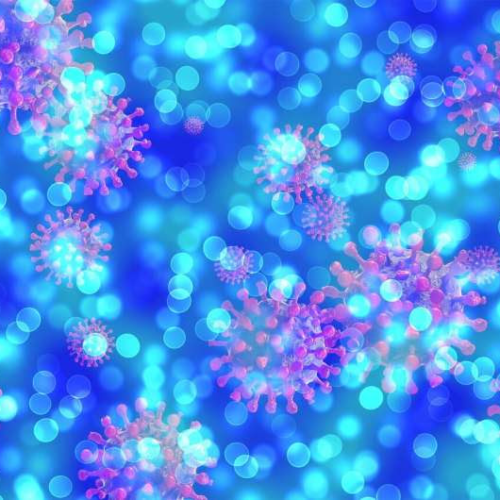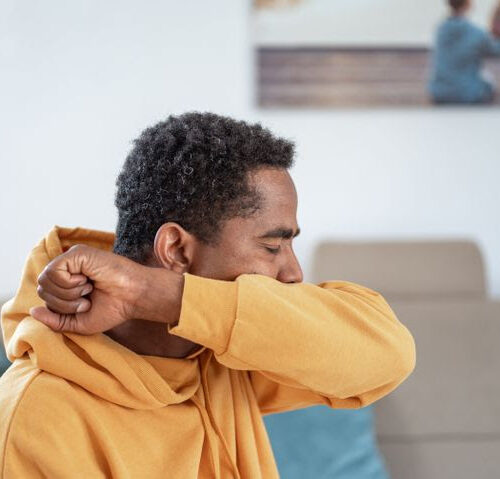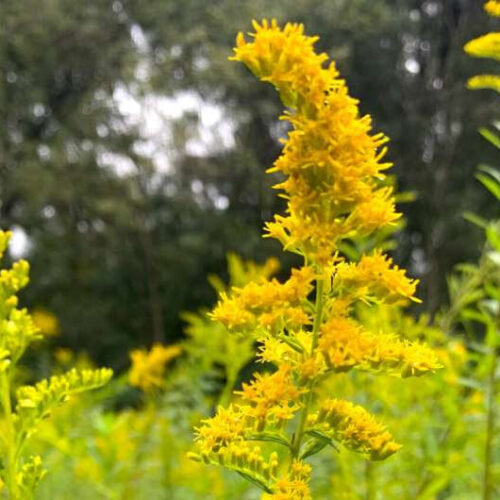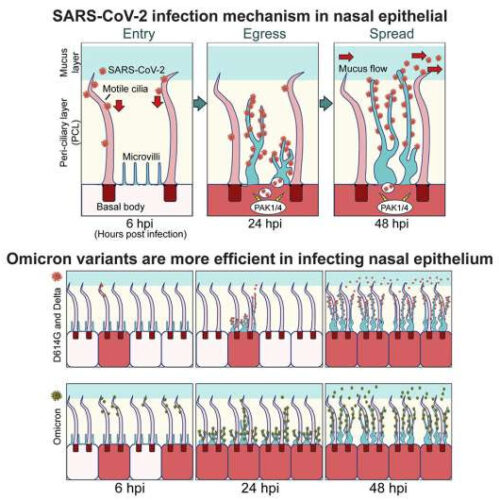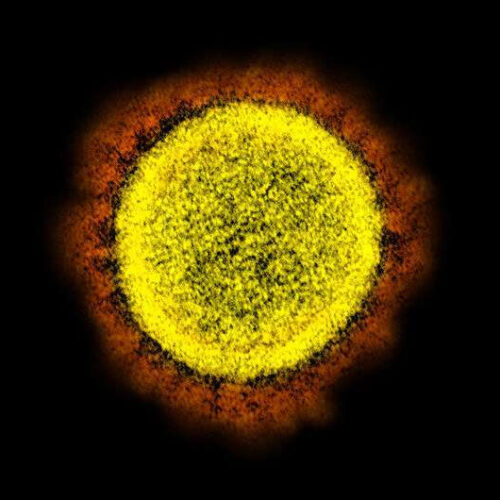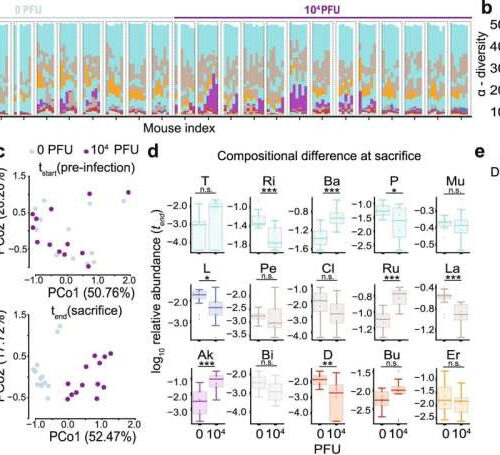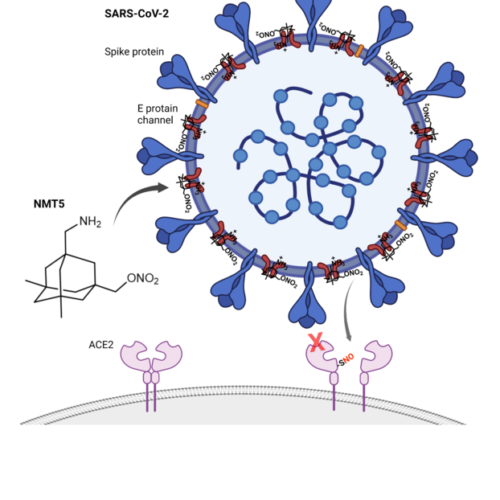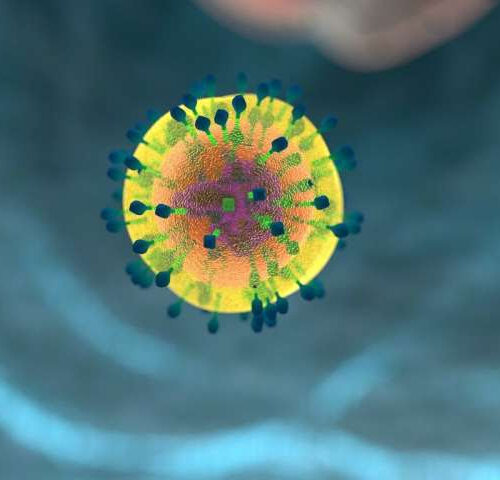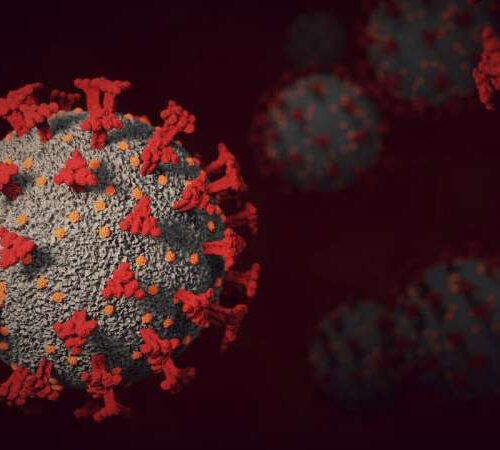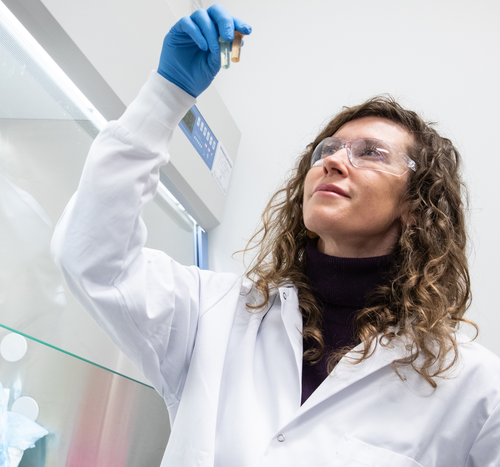by University of California, San Francisco Credit: Pixabay/CC0 Public DomainThe COVID-19 virus can persist in the blood and tissue of patients for more than a year after the acute phase of the illness has ended, according to new research from UC San Francisco that offers potential clues to why some people develop long COVID. The...
Tag: <span>Covid-19 virus</span>
Were You Sick But Didn’t Have COVID? It Could Have Been This Virus
By Jillian Wilson Jun 1, 2023, 05:45 AM EDT TI-JA VIA GETTY IMAGES Coughing is one of the symptoms of a respiratory virus known as human metapneumovirus, or HMPV. During the height of the coronavirus pandemic, when masking was required across much of the country and people were staying home, cases of illnesses like the flu...
Extracts from two wild plants inhibit COVID-19 virus, study finds
by Carol Clark, Emory University Tall goldenrod (Solidago altissima). Credit: Tharanga Samarakoon Two common wild plants contain extracts that inhibit the ability of the virus that causes COVID-19 to infect living cells, an Emory University study finds. Scientific Reports published the results—the first major screening of botanical extracts to search for potency against the SARS-CoV-2...
Scientists pinpoint COVID-19 virus’s entry and exit ports inside our noses
by Bruce Goldman, Stanford University Graphical abstract. Credit: Cell (2022). DOI: 10.1016/j.cell.2022.11.030 Somebody just coughed on you. On a plane. At a dinner party. In a supermarket line. If only there were a “morning after” nasal spray that could knock out respiratory viruses’ ability to colonize your nose and throat. In a study published January 5 in...
New receptor ‘decoy’ drug neutralizes COVID-19 virus and its variants
by Dana-Farber Cancer Institute Novel Coronavirus SARS-CoV-2 Transmission electron micrograph of SARS-CoV-2 virus particles, isolated from a patient. Image captured and color-enhanced at the NIAID Integrated Research Facility (IRF) in Fort Detrick, Maryland. Credit: National Institute of Allergy and Infectious Diseases, NIH Scientists at Dana-Farber Cancer Institute have developed a drug that potently neutralizes SARS-CoV-2,...
COVID-19 virus increases risk for other infections by disrupting normal mix of gut bacteria
by NYU Langone Health SARS-CoV-2 infection causes gut microbiome alterations in mice. K18-hACE2 mice were infected intranasally with 0 or 104 PFU of SARS-CoV-2. Fecal samples for microbiome analyses were collected daily from day 0 (before infection) until sacrifice; mice were sacrificed on days 5–7. Results show pooled data from three independent experiments with n = 3–5 mice...
New drug has potential to turn COVID-19 virus against itself
SCRIPPS RESEARCH INSTITUTE IMAGE: A DRUG DEVELOPED BY SCRIPPS RESEARCH SCIENTISTS PREVENTS SARS-COV-2 (BLUE) FROM BINDING TO ACE2 RECEPTORS (PINK) TO INFECT HUMAN CELLS. THE DRUG LATCHES ON TO THE VIRUS AND THEN ADDS A “NITRO GROUP” SIMILAR TO NITROGLYCERIN TO ACE2 WHENEVER THE DRUG-COATED VIRUS APPROACHES THE RECEPTOR. view more CREDIT: SCRIPPS RESEARCH LA JOLLA, CA—A new...
T-cells more important in the fight against the COVID-19 virus than initially thought
by Leiden University Credit: CC0 Public Domain A COVID-19 vaccine that specifically instructs the immune system to produce T-cells rather than antibodies is shown to provide good protection in a mouse model, Leiden University Medical Center (LUMC) researchers report in Nature Communications. According to them, the alternative vaccine may offer a solution for people with a...
Antivirals, some antibodies found to work well against BA.2 Omicron variant of COVID-19 virus
by Eric Hamilton, University of Wisconsin-Madison Credit: Pixabay/CC0 Public Domain The antiviral therapies remdesivir, molnupiravir, and the active ingredient in Pfizer’s Paxlovid pill (nirmatrelvir), remain effective in laboratory tests against the BA.2 variant of SARS-CoV-2, the virus that causes COVID-19. The BA.2 variant also remains susceptible to at least some of the monoclonal antibodies used...
Why Covid-19 virus is not as transmittable on surfaces as you think
UNIVERSITY OF UTAH IMAGE: UNIVERSITY OF UTAH BIOMEDICAL ENGINEERING ASSISTANT PROFESSOR JESSICA KRAMER HAS LEARNED THAT MUCINS, A PROTEIN IN HUMAN MUCUS, ACTS AS A BARRIER THAT PREVENTS VIRUSES LIKE COVID-19 FROM SPREADING THROUGH CONTAMINATED SURFACES. HER RESEARCH REVEALS WHY THE CORONAVIRUS LARGELY DOES NOT SPREAD BY TOUCHING SURFACES LIKE COUNTERTOPS OR OBJECTS. CREDIT: DAN...

